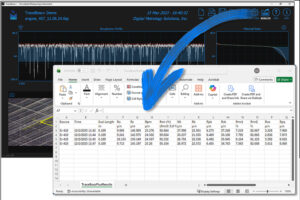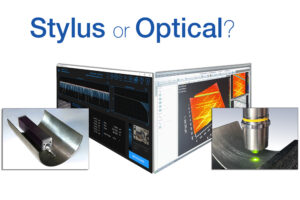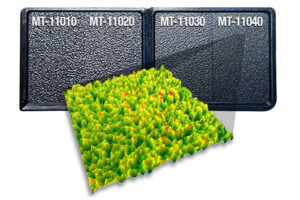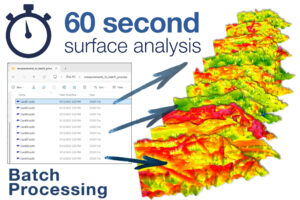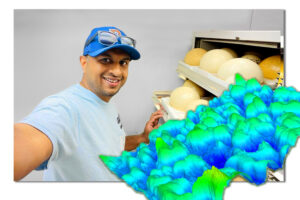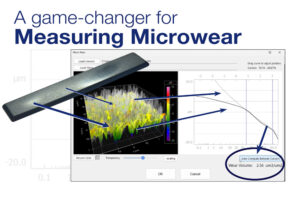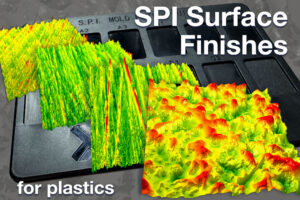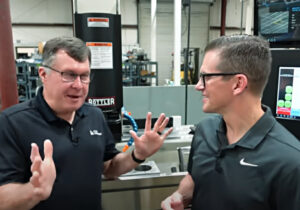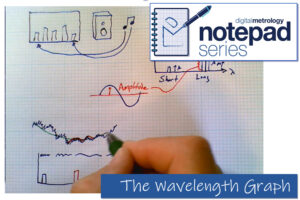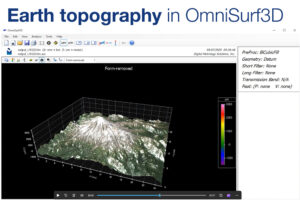60-Second Surface Analysis Video – Saving TraceBoss Data to an Active Spreadsheet
In TraceBoss and TraceBoss+ you’ve always been able to export your calculated parameters directly to a spreadsheet. Now, you can also save them to an active spreadsheet. This 60-Second Surface Analysis video shows you how it's done! Read More
Thinking of “upgrading” from a stylus? Think again!
“Why would you use that antique measuring system? Today we have optics!”
Measuring with a stylus can seem low tech or even old fashioned…but in fact, both stylus and optical technologies have their place, and which one is “best” depends entirely on the application. Find out more in this Surface Notes blog post! Read More
Did I make a good MT-11010 surface?
How do you know if a Mold-Tech surface finish is "good?" Typically, we visually inspect these kinds of textures for obvious defects, and that's enough. But for higher-end finishes, we may need to do more: we may need to specify and control aspects of the texture to ensure the consistent finishes that consumers see as "quality." How can we do that? Find out in this Surface Matters blog post! Read More
60-Second Surface Analysis Video – Batch Processing
When you’re handling lots of surface texture data, you want to be able to automate the analysis. OmniSurf3D’s Batch Processing handles the tedious tasks, and it’s lightning fast, even on big files. Learn how it can save you time in this 60-Second Surface Analysis video. Read More
OmniSurf3D Powers Eggshell Research
3D surface texture analysis goes into so many interesting places! Dr. Thilina De Silva is part of a team creating a database of eggshell surface topographies. The data may reveal new understandings about living and extinct birds and their ecology and behavior. As it turns out, our OmniSurf3D software has proven to be the perfect tool for analyzing the data. Read More
60-Second Surface Analysis Video – Microwear Analysis
Wear can take time. That’s why in most wear analysis, we accelerate the process. We get an answer, but just not a representative one.
The new Microwear Analysis in OmniSurf3D lets us compare worn and unworn surfaces to see how the surface changed under actual conditions. It’s a game-changer for wear measurement! Find out how it works in this short video. Read More
SPI Surface Finishes in the Surface Library
SPI surface finishes let plastics manufacturers specify the right texture for appearance, feel, and grip. We’ve just added 12 new SPI Finish datasets to our Surface Library. Check them out, as well as Mold-Tech and VDI plastic textures, and hundreds of other 3D surface textures. And download a trial version of OmniSurf3D surface texture software to open and explore the library datasets, and your own data as well! Read More
Roughness matters! An interview with Lake Speed, Jr.
250,000 views! Check out our recent video discussion on surface texture with Lake Speed, Jr. aka “The Motor Oil Geek.” Lake invited Digital Metrology’s Mark Malburg in to underline the fundamental role of surface roughness in making durable, efficient engine systems. It's eye-opening! Watch the video here.
By the way, you can download and explore all of the surfaces in this video from our Surface Library! Read More
Notepad Series Video: The Wavelength Graph
What song is your surface playing? It’s an odd thing to ask…but it’s a helpful way to think about surface texture. The Wavelength Graph, or Wavelength Content Graph, shows us how loud the “notes” are in our surface texture.
In this video we’ll show you how to read the wavelength content graph and how to use it to explore and understand your parts and processes.
The wavelength content graph also provides a great way to visually choose your filtering. Check out our Interactive Filtering with OmniSurf3D video for more.
Want to try it for yourself? Download a trial version of OmniSurf3D today! Read More
Earth Topography in OmniSurf3D
Surface texture analysis can be fun—you always see new things that numbers just can’t show you! Here’s a fun example: did you know that you can download earth surface topography and satellite imagery into OmniSurf3D software? Now you can use our surface roughness tools to analyze meters and kilometers, just like you’d look at microns and millimeters! See how easy it is to do in this video. Read More

